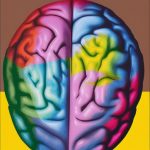7 ADD Coping Mechanisms for College Students

ADD coping strategies are important for helping students with attention deficit disorder (and ADHD, or attention deficit hyperactivity disorder) deal with conditions that can impede their learning. And if you look up ADD coping strategies on the Internet, you’re likely to find a ton of articles directed at teachers.
But what this particular algorithm fails to get right is that ADD or ADHD students are very much involved in their learning and would like to know what they can do to succeed without their conditions getting in the way. In the following article, we’re writing one for the students. These strategies are helpful whether you’ve been diagnosed or simply suspect that you might have one of these disorders. Let’s begin!
How ADD Affects You
Before getting to the strategies themselves, let’s first take a look at how ADD can affect you. After all, it’s very likely the 6 million diagnosed cases in the US are incomplete. Many never get diagnosed but exhibit one or more of the following symptoms:

- Poor memory
- Restless body and/or thoughts
- Losing keys or books or homework
- Inability to stay with lectures, note-taking, or detailed assignments
- Compulsion to speak out of turn or being unable to wait for a teacher to call on you
- Inability to organize
- Leaving things unfinished to start something new
The good news is that having one or all of these qualities do not necessarily mean you have ADD. After all, these things can work on a spectrum of severity, and you might be able to rein yourself in with a little more mindfulness. Regardless of where you are on the scale, though, you must address the issues that ADD or ADHD bring to light. Otherwise, you will find yourself fighting the following:
Clouded Thinking
Take all the symptoms we’ve mentioned above, and apply them to a single class. That alone would be hard to deal with, but you have seven subject areas to work through in high school and even more advanced curricula as you advance into college or a technical school.
The problem can get exponentially worse, in other words. It can make you feel behind without hope of ever catching up. As we continue, we’ll be discussing strategies that can prevent this from happening.
No Perseverance
Perseverance is the key to success in any walk of life, regardless of whether you have ADD or ADHD. It can be difficult to establish no matter who you are, and ADD/ADHD doesn’t help. The ability to persevere comes through an ability to keep your eyes on the prize, or focus.
Severe ADD or ADHD can result in giving up too soon and going down other less edifying pathways. The strategies below will help you hone your ability to persevere.
It Knocks Time and Organization Out of Whack
Your ability to succeed is largely strengthened by time management and organizational skills. ADD and ADHD pose a direct threat to you on both of those fronts. Our strategies are designed to give you the tools to fight back.
Now that we’ve established what ADD and their symptoms can do to your studies, career hopes, and life, it’s time to think about how you can work wisely to defeat it.
1. Adhere to Schedules
The first thing you can do to cope with ADD or ADHD is to set your life to a schedule. School helps with this a bit through first period, second period, third period, etc., but it’s easy to get lost along the way if you’re not the one setting the schedule.
Become fanatical about your routines. Look for the areas of your life where you are in complete control of your time; then plan out how each of those hours will go. You might even want to break the hours down into 15-, 20-, or 30-minute increments to allow your mind to jump around but stay on course.
2. Plan Before Doing the Work
One of the things that can really allow your ADD or ADHD symptoms to take over is a lack of proper planning. Think about it. You have a big project to do, and all you have is a blank page and an end goal in front of you. There is way too much time for your mind to wander. A complete plan will prevent this from happening.
Spending 30 minutes to lay out a project before you begin will help you see the individual parts of the whole. It will mean you don’t have to stop and wonder what comes next every five minutes. It will give you a constant signpost of accomplishment in much the same way that a save-point does in a video game. With that outline or game plan in place, you can advance and stay focused from point to point without going off-course.
3. Make Studying As Fun As Possible
Okay, now how is this even possible? Studying fun? Believe it or not, you can do things to liven up the process as you slog through those things you would rather not have to deal with. For example, you can use learning tricks like mnemonic devices to remember key information like how to spell arithmetics (A rat in the house may eat the ice cream) or acronyms for the primary colors (Roy G. Biv = Red, orange, yellow, green, blue, indigo, violet).
These are simple examples you can find anywhere. Don’t start looking up examples. Instead, make up some of your own. Ones that come from your head and experiences. If you do that, it will cement the information you are trying to learn.
4. Learn the Art of Prioritizing
One particular difficulty of ADD or ADHD is that you don’t know where to begin on things, so you start a whole lot of things without finishing them. Prioritizing can help prevent this from happening, and it’s actually a great thing because it gives you a way of harnessing that drive to procrastinate for the better.
Procrastination has long been looked down upon in the educational world as a bad thing. It’s really not if you know how to use it to your advantage. The truth is, some things do not have the same level of priority as others. Those things should be “put off until tomorrow,” so long as you’re taking care of the things you need to be taking care of today.
5. Be Fanatical About Regimens
The key to conquering the hold your symptoms have on you is to become fanatical about your regimens. You might not be able to recall everything you have to do today from memory, but you can establish a framework for how you need to be using your free time. From there, the planning ahead we mentioned above will help set a course that keeps you on track.
What you’ll find is this: the more emphasis you place on regimens, the easier it will become to accomplish what you need to accomplish. That will ultimately allow more free time to do the things you want and love to do.
6. Make Hobbies and Free Time Your Rewards
It can be hard for anyone to work straight through until a project is accomplished. That’s why we advocate so much for scheduling and breaking things up into smaller chunks. For the ADD or ADHD student, however, there may need to be a little more motivation to keep moving between tasks.
What are some of the things you really love to do with your free time? Listen to books-on-audio? Write blogs? Peruse favorite podcasts? Reading more or working more on a favorite hobby? Fill the time between tasks with mini-rewards to keep moving. Then, have a plan for what you’re going to do with your free time to stay productive when everything is done.
7. Treat Your Body and Mind Right
As with everything in life, you will do it better if you give yourself plenty of time for sleep, rest, exercise, and meditation. Take care of yourself and, yes, even plan to do nothing from time to time. Your body will thank you for it, and the results will show in your performance in school.
Mastering These ADD Coping Tactics Will Even the Playing Field
We hope if you have one of these two conditions, the ADHD and ADD coping strategies presented here will help you navigate the waters of high school and college with success. Now it’s your turn. If you know what it’s like to live with one of these two conditions, what are some strategies that have helped you deal? Share in the comments section, and best of luck moving forward!
[Featured Image by Wikimedia Commons]








